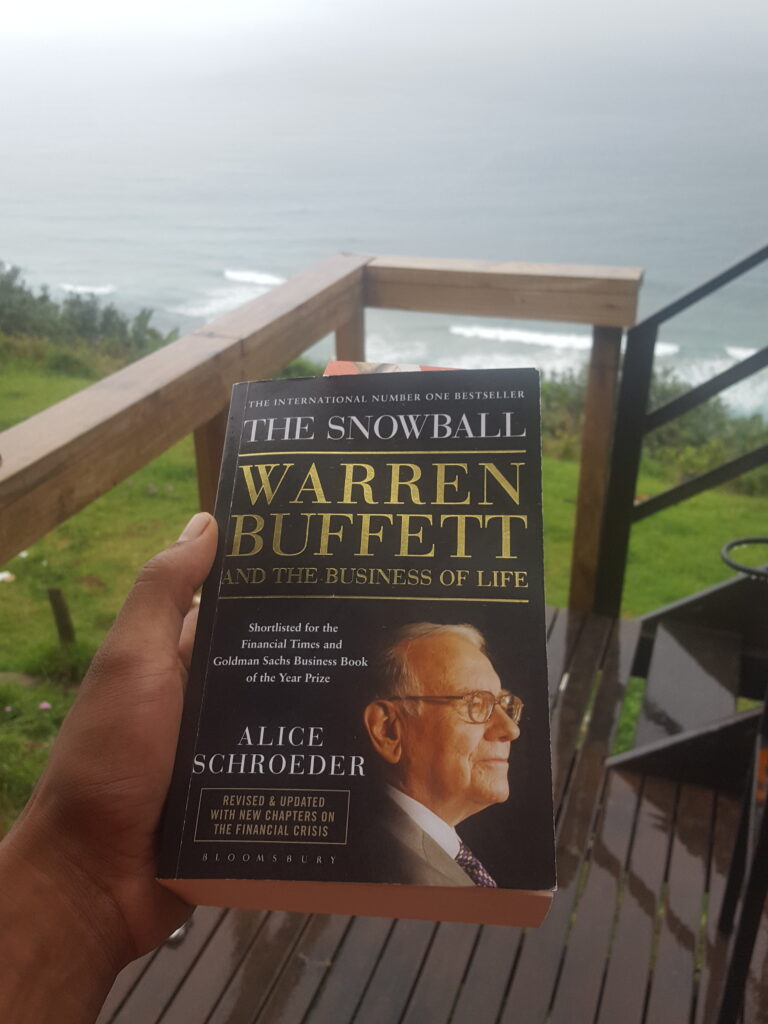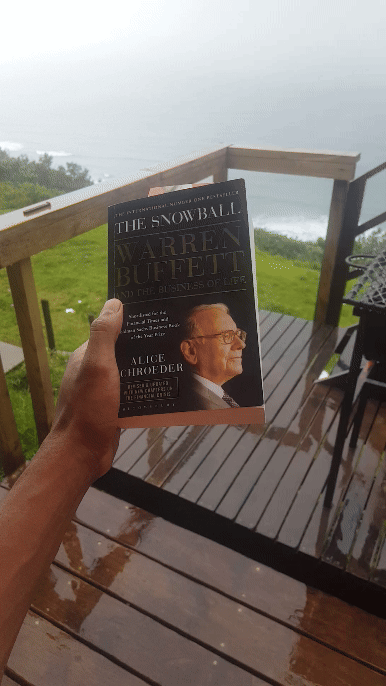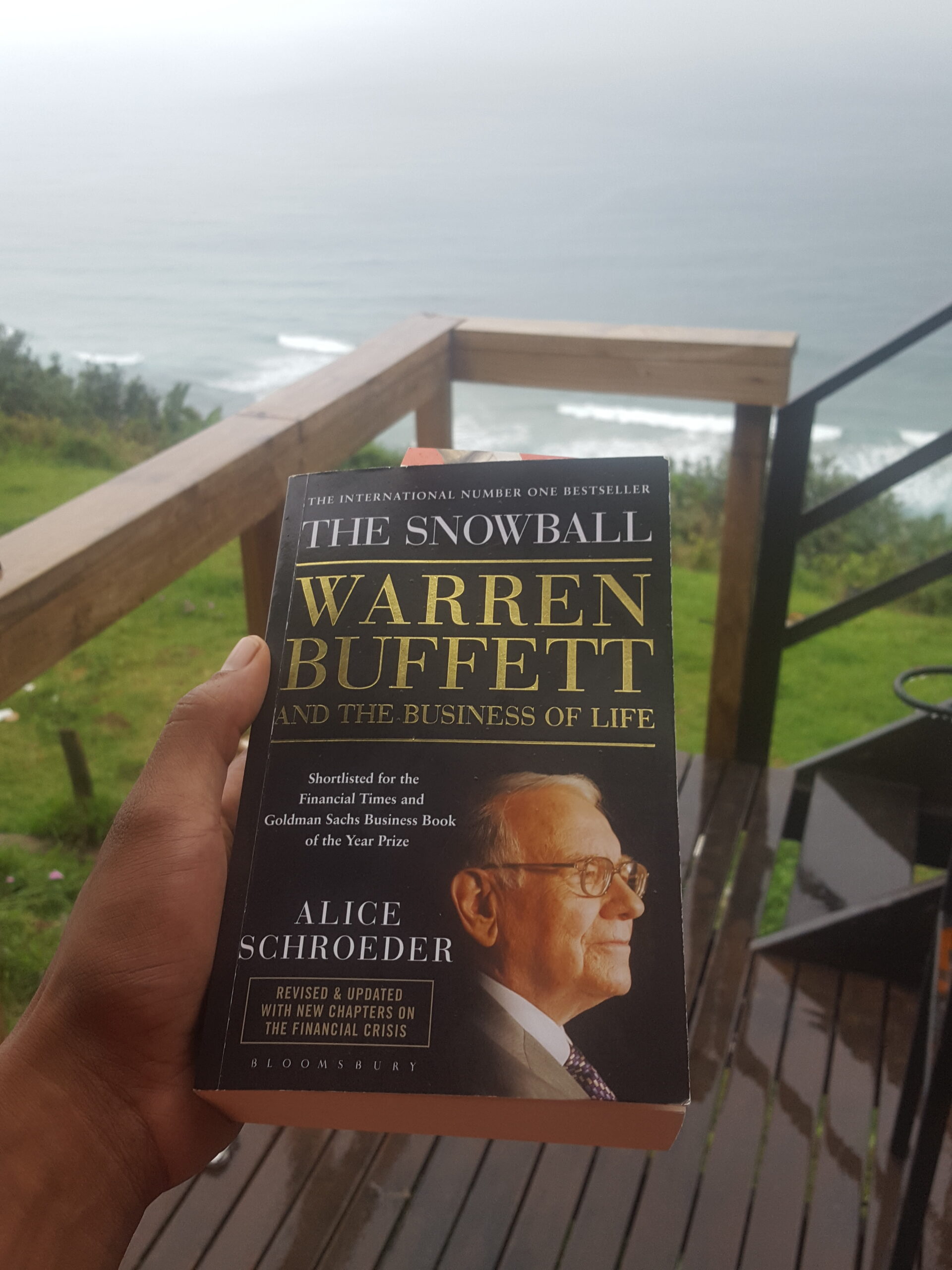
Unpacking Warren Buffett’s Life and Lessons: My Experience Reading The Snowball by Alice Schroeder
Warren Buffett, a name synonymous with wisdom in investing, has long been a figure of fascination for me. His approach to life, business, and success is not just about numbers and profits but is deeply rooted in principles and values that resonate far beyond the world of finance. When I picked up The Snowball by Alice Schroeder, I knew I was in for a detailed account of Buffett’s life, but what I didn’t expect was the depth of personal and professional insights that would shape my own thinking. This book, more than any other, provided a comprehensive look into the man behind the wealth and the lessons that have made him an enduring icon.
The Quiet, Consistent Life Choices of Warren Buffett
One of the most striking aspects of Buffett’s life is how he chose to live it—quietly, consistently, and with a strong focus on his interests. Despite his immense wealth, Warren Buffett has always been content living in the same modest house in Omaha, Nebraska, which he bought in 1958. To some, his lifestyle might seem boring, but it perfectly aligns with his personality and priorities. Buffett has always found joy in the simple pleasures of reading, analyzing companies, and making informed decisions. His sedentary lifestyle, centered around his love for books, isn’t a sign of complacency but rather a reflection of his deep focus and contentment in what truly matters to him.
Buffett’s approach to life is a reminder that success doesn’t have to be flashy. It’s about knowing what you value and staying true to those values, no matter how much wealth or fame you acquire. His consistency and frugality are as much a part of his success as his investment acumen.
The Influence of Benjamin Graham and David Dodd
Warren Buffett’s career was profoundly influenced by his mentor, Benjamin Graham, and his close collaborator, David Dodd. Graham, often referred to as the “father of value investing,” and Dodd co-authored Security Analysis, a seminal book that laid the foundation for modern value investing. Buffett’s early interest in these ideas was sparked at a young age, long before he attended Columbia Business School, where Graham and Dodd taught.
As a young man, while most of his peers were interested in the typical distractions of youth, Buffett was devouring books like The Valuation of Bonds and Graham’s The Intelligent Investor. These books weren’t just texts to him; they were blueprints for understanding how the financial world worked. Graham’s concept of “Mr. Market,” the idea that the stock market is driven by the irrational emotions of fear and greed, profoundly influenced Buffett’s thinking. He learned to see stocks not as pieces of paper with fluctuating prices but as parts of real businesses with intrinsic value.
At Columbia, Buffett was deeply inspired by Graham’s teachings. Graham’s philosophy of investing—focusing on the intrinsic value of a company rather than market trends—became the bedrock of Buffett’s own investment approach. Graham’s “cigar butt” method, which involves buying undervalued companies that still have a bit of life left in them, was one of the early strategies Buffett employed. However, he later evolved to seek out companies with enduring value, influenced by his later partnership with Charlie Munger.
David Dodd’s contributions also played a significant role in shaping Buffett’s analytical rigor. Dodd emphasized the importance of thorough research and disciplined analysis, qualities that Buffett would carry with him throughout his career. The principles taught by Graham and Dodd didn’t just influence Buffett’s approach to investing; they shaped his entire philosophy on life and business.
Buffett often reflects on how fortunate he was to be exposed to these ideas at such a young age. He made a few key decisions early in life—like immersing himself in these foundational books and adopting the principles they espoused—that compounded over a lifetime. This early commitment to understanding the world of finance set Buffett on a path that would eventually lead him to become one of the most successful investors in history.
Lessons and Short Sayings: A Treasure Trove of Wisdom
Over the years, I’ve delved into almost every piece of material available about Warren Buffett and his long-time partner, Charlie Munger. From annual reports to shareholder meetings, there are always new insights to gain. Buffett and Munger’s wisdom is often distilled into short, powerful sayings that stick with you long after you’ve heard them. For example, “Be fearful when others are greedy and greedy when others are fearful” is not just about investing but about understanding human nature and market cycles. Another favorite of mine is “Someone is sitting in the shade today because someone planted a tree a long time ago,” which speaks to the importance of long-term thinking and the impact of our actions on the future.
These sayings are more than just catchy phrases; they encapsulate profound truths that apply to all areas of life. The simplicity of Buffett’s wisdom is part of its power—it’s easy to understand, yet it challenges you to think deeply about your actions and decisions. Some other short sayings from Buffett that resonate deeply with me include:
- “Price is what you pay, value is what you get.” This reminds me to focus on the intrinsic value of anything I invest in, rather than being swayed by market prices or external perceptions.
- “The best investment you can make is in yourself.” This saying reinforces the importance of continuous learning and personal growth, something I strive to prioritize every day.
- “The first rule of investing is to not lose money, the second rule is to not forget rule number 1.” This simple yet profound rule encapsulates the importance of risk management in investing and in life.
- And from Charlie Munger, “I’d rather be roughly right than precisely wrong.” This is a reminder that it’s better to make sound, albeit imperfect, decisions than to get caught up in the paralysis of analysis.
These sayings have guided my thinking, not just in business but in all aspects of life. They’re straightforward, yet they carry a depth of wisdom that I find both comforting and challenging.

“Always put money away for a rainy day”
Navigating Challenges: Solomon Brothers and the Importance of Reputation
Buffett’s career hasn’t been without its challenges. One of the most stressful periods in his life was dealing with the crisis at Solomon Brothers, a Wall Street investment bank. Buffett had to step in as interim chairman to steer the firm through a turbulent period marked by a trading scandal that threatened the bank’s survival. The stress was immense, and Buffett later reflected on this time as one of the most difficult in his career. But more than the financial risk, what was truly on the line was Buffett’s reputation.
Buffett has always emphasized the importance of maintaining a sterling reputation, understanding that once it’s tarnished, it’s incredibly difficult to restore. His involvement with Solomon Brothers wasn’t just about saving the bank—it was about upholding his own principles and the trust that others had placed in him. This experience served as a powerful reminder that no matter how successful you become, your reputation is one of your most valuable assets, and it must be protected at all costs.
Another significant lesson from Buffett’s life is his handling of Berkshire Hathaway, originally a failing textile company. Buffett himself describes the purchase of Berkshire Hathaway as one of his biggest mistakes, but instead of letting that mistake define him, he used it as a learning opportunity. He eventually transformed Berkshire into the largest holding investment company in the world. This transformation was possible because Buffett and Munger recognized the potential of the insurance businesses they acquired, which provided them with significant cash reserves (known as “float”) to make further investments. The idea of “taking advantage of your advantages” became a cornerstone of their strategy, particularly with their investments in companies like GEICO and See’s Candy.
Buffett’s ability to turn a mistake into a massive success is one of the many reasons I admire him. It’s a lesson in resilience and the importance of staying adaptable.
The Value of Continuous Learning
One of the most impactful lessons I’ve learned from Warren Buffett and Charlie Munger is the importance of being a lifelong learner. Charlie Munger once said, “I constantly see people rise in life who are not the smartest, sometimes not even the most diligent, but they are learning machines. They go to bed every night a little wiser than they were when they got up.” This quote has profoundly impacted me.
Every day, I choose to wake up with the goal of being a little bit wiser than I was the day before. I don’t know for certain if this path will lead to success, but I believe in what Charlie Munger said—almost to the point of being a fanatic, blindly believing without the need for evidence. My brain might see no evidence now, but that’s a story for another day. The idea that consistent, incremental learning can compound over time has become a guiding principle in my life.
Buffett often says that learning about investing made him a better businessman and that learning about business made him a better investor. This is one of the most important lessons I’ve taken from him—knowledge compounds just like interest. His commitment to continuous learning has been a cornerstone of his success, and it’s a habit that I’ve tried to adopt in my own life. Books like Warren Buffett and the Interpretation of Financial Statements by Mary Buffett inspired me to dive into thousands of annual reports and financial statements from hundreds of companies.
That exercise was incredibly empowering; I now have an instinctual understanding of business and investing. I can glance at a financial statement and quickly assess a company’s value, understand how it makes money, identify risks, and evaluate how efficiently it operates. This knowledge has put me in a great position to provide consulting services to businesses, which is something I truly enjoy.
A Simple Approach to Wealth and Family
One of the things I admire most about Warren Buffett is how he plans to handle his wealth. Buffett famously stated that he doesn’t believe in leaving vast sums of money to his children, preferring instead to give it away to causes that matter. He believes in giving his kids enough so they can do anything, but not so much that they can do nothing. I think that’s a great way to handle wealth—it encourages independence and responsibility while still providing a safety net.
Buffett’s approach to wealth distribution is another reflection of his grounded, practical nature. It’s about creating value and opportunity, not just for his family but for society as a whole.
A Life of Perspective and Humility
Warren Buffett often says that he won the genetic lottery by being born in the United States—a country that rewards the skills he happens to excel in. He acknowledges that in another time or place, his success might have been impossible. Centuries ago, survival depended more on physical strength and charisma than on financial acumen. Buffett’s humility and perspective on his success are refreshing, especially in a world where wealth often leads to a sense of entitlement. His gratitude for the opportunities he’s had is a reminder of the importance of staying humble, no matter how much you achieve.
Reflecting on Buffett’s Legacy
Warren Buffett’s life, as detailed in The Snowball, is filled with invaluable lessons that extend far beyond investing. From his partnership with Charlie Munger to his approach to continuous learning and his unique perspective on wealth and success, Buffett’s story is one of resilience, humility, and unwavering principles.
Reading The Snowball has not only deepened my understanding of Buffett as an investor but also as a person. It’s a reminder that true success is built on a foundation of solid values, continuous learning, and the ability to adapt and grow. For anyone interested in business, investing, or simply living a meaningful life, The Snowball is a must-read. It’s a book that offers insights at every turn and challenges you to think more deeply about your own journey.
Whether it’s through his straightforward wisdom or the complex strategies that have made him one of the wealthiest people in the world, Warren Buffett’s influence is undeniable. And for me, his story is a source of endless inspiration.
